Watchdog offers online channel for anti-graft tips
Updated: 2014-12-10 03:43
By ZHANG YAN(China Daily)
|
||||||||
The top anti-graft watchdog has opened a special channel on its website to receive tipoffs about corrupt officials who flee abroad and transfer illegally acquired assets overseas.
"We welcome people at home and abroad reporting relevant corruption clues," the Communist Party of China Central Commission for Discipline Inspection said in a statement provided to China Daily on Tuesday.
"We will organize special anti-graft officers to accept them and protect the whistleblowers’ rights in accordance with the law."
The statement said people providing tipoffs should first read the rules on the website and accept them. They will then receive access to a page on providing relevant information.
Under the rules, disciplinary inspection and supervision agencies welcome reports provided without anonymity, especially those giving real names of whistleblowers and their accurate contact details.
In recent years, a number of corrupt Chinese officials have fled to overseas countries, including the United States and Canada, transferring suspected corruption proceeds abroad, said Huang Shuxian, deputy head of the Central Commission for Discipline Inspection.
"This has seriously damaged the image of the Party and the government, and harmed social fairness and justice," he said.
"Fugitives will be punished according to the law in response to complaints from the public," he added.
Between 1984 and 2010, nearly 4,000 corrupt officials fled abroad, transferring more than $50 billion overseas, according to figures released by the commission in 2010.
By the end of last year, more than 150 corrupt officials were still at large in the US, with billions of yuan sent illegally to that country through money laundering and underground banks, according to the Ministry of Public Security.
In July, the ministry launched the "Fox Hunt 2014" campaign to trace economic fugitives on the run abroad and confiscate their ill-gotten gains.
Up to Dec 4, Chinese police had repatriated 428 suspected economic fugitives from 60 countries and regions to face trial. They comprised 197 who were captured and 231 who turned themselves in. Police also confiscated some of their suspected illegal assets.
Since November 2012, when the new leadership took office, President Xi Jinping has attached great importance to enhancing judicial cooperation with other countries to capture fugitives and recover their assets.
At the Asia-Pacific Economic Cooperation summit in Beijing in early November, leaders of APEC economies agreed to set up a law enforcement cooperation network to target corrupt officials.
Huang Feng, a law professor at Beijing Normal University, said China will strengthen judicial cooperation with other countries, especially the US and Australia, on sharing intelligence, investigating cases and combating money-laundering.
Hong Daode, a law professor at China University of Political Science and Law, said the Central Commission for Discipline Inspection will motivate the public to provide more corruption clues, especially tipoffs from abroad.
"Anti-graft officers will also use such clues to locate fugitives in some foreign countries and help to track their illegal assets," Hong added.
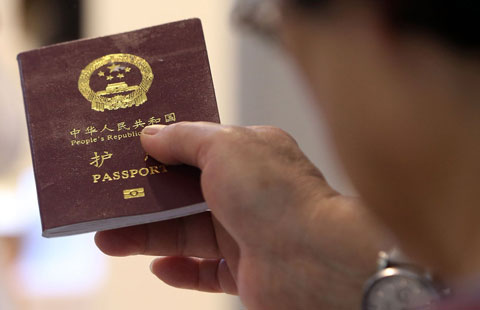
 Chinese passport opens more doors in 2014
Chinese passport opens more doors in 2014
 China faces: Glimpses of life and love
China faces: Glimpses of life and love
 Top 10 favorite gift brands of rich Chinese women
Top 10 favorite gift brands of rich Chinese women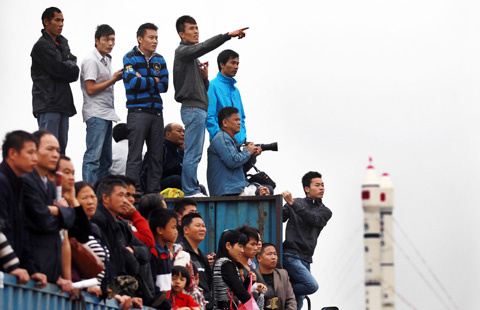
 In photos: Group watching
In photos: Group watching
 Pictures of the year: Fashion
Pictures of the year: Fashion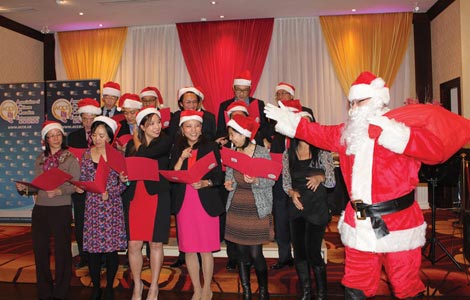
 Across Canada Dec 10
Across Canada Dec 10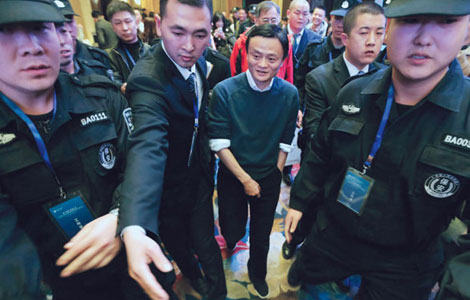
 Jack Ma in running for Time magazine Person of Year
Jack Ma in running for Time magazine Person of Year
 China: New climate change fund 'market-based'
China: New climate change fund 'market-based'
Most Viewed
Editor's Picks

|
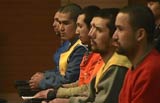
|

|
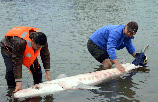
|

|

|
Today's Top News
Xi chosen as 'Person of the Year' in Russia
Hypersonic tests target no specific country
Vermont, California, NYC tap into EB-5 program for money
Massacre survivors, relatives urge Japan to reflect in letter to UN
Facebook may need a partner to get into China
BOC adds to China's portfolio of NY property
Watchdog goes online to fight graft
China Construction Bank Toronto Branch Grand Opening Ceremony
US Weekly

|

|







